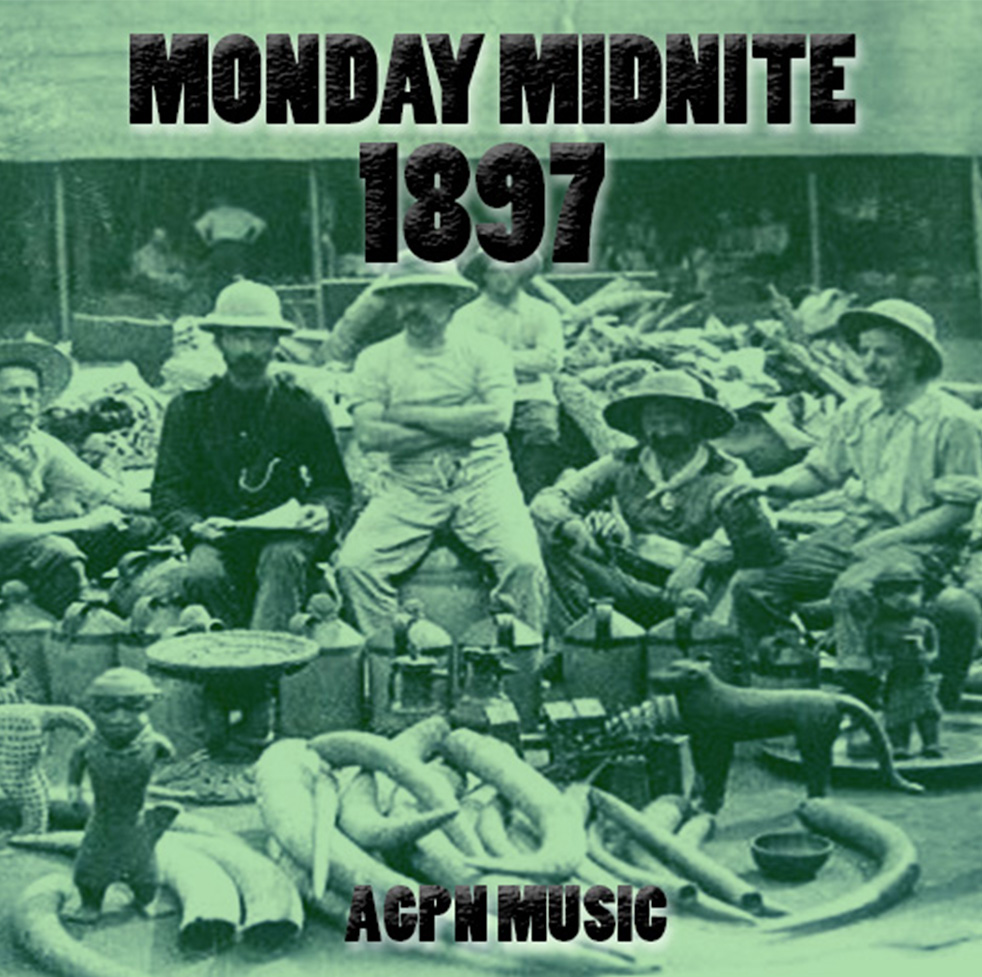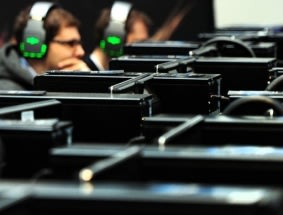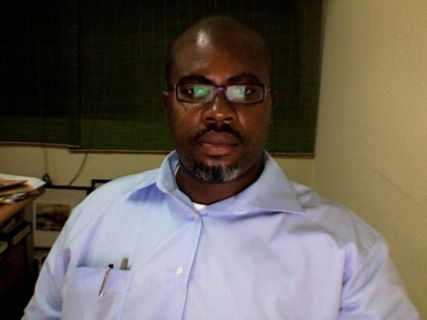Nigeria’s clamour for the return of its artefacts in Western countries will not yield fruit except the country revises extant measures on repatriation of artefacts. Over time, calls for the return of thousands of Nigerian artefacts stolen, looted or acquired under dubious circumstances and held in public and private collections in Europe and the United States have remained unheeded.
But speaking at a colloquium held as part of Peju Layiwola’s travelling exhibition titled ‘Benin 1897.com: Art and the Restitution Question’ at the main auditorium, University of Lagos on Thursday, April 8, speakers underscored why Nigeria needs to take proactive steps in the recovery of its artefacts.
We want our artefacts
Chair of the session, Akin Oyebode held that Nigeria needs to put the return of artefacts “on the middle burner, if not the front burner of our foreign policy.” The professor of Law who referenced a conference on the return of artefacts to their mother country that ended the previous day in Cairo, Egypt, added that restitution is what Africans want, not reparation. “It’s the artefacts that we want, not money,” he stressed.
In a paper titled ‘Towards a Strategy for Curbing Illicit Trafficking and the Return of Cultural Property’, Folarin Shyllon explained that looting of artefacts and antiquities is an ancient practice that grew exponentially in the 20th century. He compared existing Egyptian, Nigerian and Malian laws where theft of artefacts is most rampant in Africa and highlighted the inadequacy of Nigeria’s laws.
The Law teacher however noted that the situation can still be salvaged with a number of steps. These include: commencing negotiations with the United Kingdom and Germany for the return of Benin bronzes looted in 1897; an inventory of all Nigerian cultural objects outside the country, and the replacement of the obsolete National Commission for Museums and Monuments Acts 1979 with a new act, amongst others measures.
Litigation as last resort?
In his paper titled ‘Between Reparation and Repatriation: Legal Issues in the Recovery of Nigeria’s Plundered Cultural Property’, Ademola Popoola, Dean, Faculty of Law, Obafemi Awolowo University, Ile Ife, noted that “Africa has lost a major and vital part of its cultural heritage to the increasing demands of the international art market. It goes without saying that this market provides a lucrative business for art traffickers. Numerous archaeological sites, shrines, monuments, palace and museum collections have been systematically attacked and robbed of their cultural contents.”
Popoola also mentioned the looting of Benin bronzes, ivory and other artworks by the 1897 British expedition which sacked the city. He recalled how the Nigerian delegation to the General Assembly of the International Council of Museums (ICOM) at Grenoble, France, had to beg for donations to furnish the National Museum, Benin City, when it was completed. He disclosed that “not a single response was received from any individual or institution. Consequently, the National Museum in Benin City opened to the public with photographs and replicas of the art objects that have become the pride of other nations and institutions.”
The academic touched on the humiliation of Nigeria when the Queen Idia ivory mask was adopted as symbol of the Second World Black and African Festival of Arts and Culture (FESTAC), which the country hosted in 1977. Prior to the festival, Nigeria asked the British Museum to return the mask among the ‘booty’ of 1897 but the Museum refused, saying the mask was too fragile to travel. Consequently, Nigeria had to have a replica made for FESTAC;77. For Popoola, options open to Nigeria to retrieve its artefacts include bilateral agreements, arbitration and mediation. “But where all these fail, recourse to litigation both at the International Court of Justice (ICJ) or the national courts as a last resort should be pursued,” he added.
No, moral suasion
Victor Odozi, a guest, however noted during the discussion that “moral suasion could be the best option, not litigation.” Art collector, Rasheed Gbadamosi, prefers a sustained campaign. “It is great that the world is realising that forcible seizure of artefacts is criminal. We did it with slave trade; we can also have a crusade now. It doesn’t matter how long it takes.” Some speakers however concurred with the excuse of some Western countries that Nigeria lacks the ability to take care of her artefacts. They cited the Ojukwu Bunker in Umuahia, Onikan Museum and National Theatre as examples of monuments rotting away.
Renowned artist, Bruce Onobrakpeya, said that the colloquium/exhibition is “a reminder to all of us that whether it takes 2000 years, whatever evil that has been committed against a nation, it will be revisited.” He also commended Layiwola, noting that “You become an artist if you are able to bring to fore issues in your environment, you don’t become an artist by going to an art school.”
Extraordinary exhibition
Others also commended the artist during the opening. Director General, Centre for Black and African Arts and Civilization, Tunde Babawale noted that “Benin 1897.Com is not an ordinary exhibition; it does not fall within the scope of what in the art parlance is termed ‘art for art sake’; that is, art with utilitarian value, art in the service of humanity.” He added that though artists employ their art to address societal issues, “the focus and weight of this particular exhibition have elevated it beyond being mere artistic expressions, to the realms of politics, diplomacy and advocacy. Beyond the opportunity of allowing us to partake of the beautifully executed art works, this colloquium/exhibition present another medium for initiating a reassessment and renegotiation with the West, the issue of restitution of Nigeria’s stolen artefacts dispersed all over Europe and America.” Babawale believed that, “many questions will arise from Benin1897.Com, one of which is: ‘is it right to steal and deprive a people of what is unquestionably theirs?’ and ‘for how long shall the people remain deprived?”
Director General, National Commission for Museums and Monuments, Abdallah Usman Yusuff, represented by an official of the organisation also expressed his goodwill.
The curator, Sola Olorunyomi, drew parallels between the despoliation of Timbuktu and the invasion of Benin while explaining the significance of the exhibition. Layiwola, he noted, is reminding people “that we yanked off the teaching of history from our curriculum in high school, and are now wondering why we lost the compass to chart the future.” He added that more than 100 years after the invasion of Benin, “families from the old kingdom still speak of their losses, in human and material terms, yet our world speaks tongue-in-cheek.”
Take pride in your heritage
Layiwola explained that ‘.com’ is an Internet domain name which means commercial in her introduction to the exhibition. The 1897 invasion, she reiterated, was also motivated by economic interests. “Benin 1897.com presents an artist’s impression of the cultural rape of Benin. It is an attempt to utilise art as a means of recalling art. It seeks to bring alive this discourse particularly on the continent and at no better time than now, when Nigeria turns 50,” she said. The lecturer referenced ‘1897’ a rap track by Belgium-based Nigerian singer, Monday Midnite. The music video, which condemns the looting of Benin, was later screened.
Layiwola reiterated that “it is crucial that the Nigerian state lodge a detailed formal request for the Benin artefacts to eradicate the easy excuse from the West that no one has requested for the Benin bronzes” on how to retrieve Nigeria’s artefacts. “Nigerians must be taught to take pride in their heritage and not confuse cultural issues with contemporary religious affiliation. The study of history, which has been thrown out of the primary/secondary school curriculum, should be brought back,” she further recommended.
The accompanying 231-page publication on art-stripping and the restitution question produced as part of the exhibition was presented by Layiwola’s husband, Dele.
‘In Praise of God’, a triptych made of copper and aluminium foil with the names of God in various languages inscribed on it; ‘Oba Ghato Okpere’ (Long live the King), a calabash installation and ‘1897.com’, installation terracotta were among works on display inside the main gallery after the colloquium. Artists Dele Jegede, Sam Ovraiti, Kunle Filani, Kolade Oshinowo and Demola Azeez were at the opening of the exhibition, which is on till May 30.









